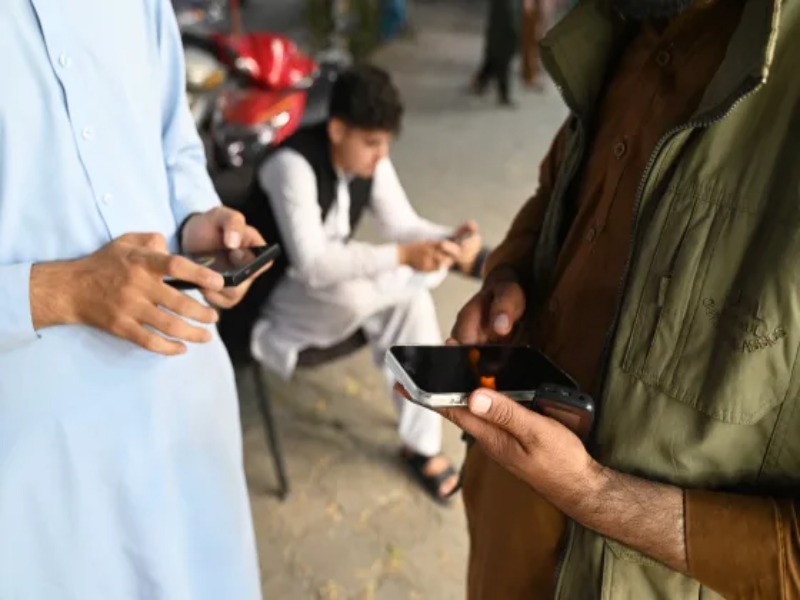Afghanistan is slowly reconnecting, said Taliban officials, after an all-inclusive shutdown in cell phone and internet services that has taken down banking, traveling, and aid work, among other activities.
In a statement, the Afghan Ministry of Information and Culture said on Wednesday that “Following a major technical disruption in Afghanistan’s mobile networks, phone call services have now begun to be gradually restored. Working round-the-clock to ensure the complete restoration of services.”
The Ministry states, “Users in some provinces have confirmed that mobile call connectivity has resumed, though difficulties persist in certain areas.”
Internet watchdog NetBlocks announced on Wednesday that “partial restoration of internet connectivity,” two days after it said Afghanistan was “in the midst of a total internet blackout.”
The United Nations Assistance Mission in Afghanistan also indicated on Wednesday that the telecommunications outage seemed to have been reversed and that services were being restored in the country of over 40 million people.

U.N. spokesperson Stéphane Dujarric stated to reporters in New York that “The cut was implemented without clear explanation from the de facto Taliban authorities and appears to have been reversed also without an explanation.”
Dujarric reported that commercial air traffic, too, had been cleared to normal levels.
It was preceded by an internet blockage last month targeting five provinces in the north, which were declared under a crackdown on immorality, giving rise to concerns of additional restrictions on the ability of Afghans to access the outside world.
Women and girls have been particularly depressed with the bans since they had to depend on the internet to continue learning after the Taliban banned them after sixth grade.
“The communications cut has risked inflicting multiple negative impacts on the Afghan people: on economic stability, on the continued grave situation for Afghan women and girls, and on the rights of all Afghan people to freedom of expression and access to information and privacy,” Dujarric added.
He claimed that the cut had also interfered with the U.N. work itself, such as essential aid to victims of recent earthquakes.
It was still not clear why the outage took place and whether it was ordered by the Taliban.
Various news outlets, such as NBC News, previously indicated that the Taliban had declined to order the internet outage, claiming that it was caused by old fiber-optic cables that they had to install.
Taliban spokesman Zabihullah Mujahid told a local Urdu-language website Al-Emarah that those reports were based on a fake statement and that the internet service had been discontinued due to technical reasons.






